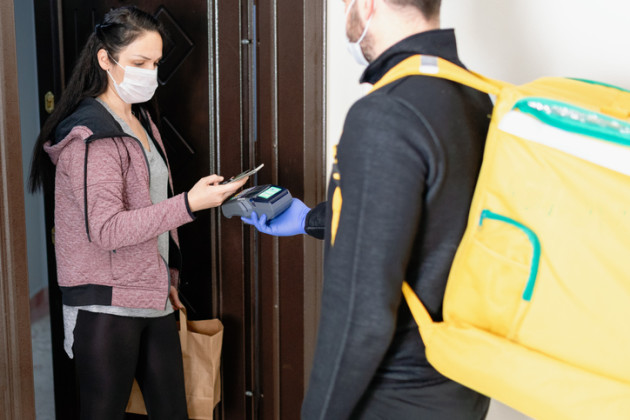
New on-trade revenue streams likely to remain post-pandemic
Retail is likely to remain firmly in the mix for many hospitality operators, even once the pandemic recedes.
This was the view of high profile restaurant and bar operators at a recent Harpers/Trade Hospitality webinar, Building Back Better: Rebooting the On-Trade for 2021.
Recounting the pivoting of business models and sales channels during the lockdowns and restrictions of the past 12 months, the panel also revealed which aspects of recent adaptations they would be folding into their business for the longer term.
For some, additional revenue streams designed to help generate income to offset at least some of the massive losses during lockdowns had in fact become successful enough to fold into the business going forward.
Adam Handling of Handling Restaurant Group described how his high-end home delivery service Hame, which provides ingredients complete with a QR code that allows home cooks to cook along with Handling, had grown into a serious complimentary business in its own right.
“We initially thought we’d sit [the first lockdown] out and didn’t realise how long London would be shut down for, and I thought my food doesn’t travel, so I wasn’t interested in doing home delivery,” said Handling.
“However, with bills continuing to flood in and “zero support from landlords, with 10 sites across London – a real kick in the teeth, we had to create something, so we created Hame,” added.
From cynic to convert, Handling revealed that Hame has grown to turn over almost £500,000 a month, with plans afoot to move the operation into its own dedicated building, “to be a continuation of the restaurant business in the future”.
For Karan Gokani, director at family owned and run Hoppers and JPS Restaurants, it became apparent even during the opening up of hospitality during the summer, that the company would be wise to tap into additional revenue streams to help buffer against future disruption.
“We looked at reopening deliver and fortunately we already had created and tweaked a good delivery model from our Soho restaurant, and we had designed the site at King’s Cross to be able to do deliveries as part of its business model, so fortunately we were able to quickly shift resource to focusing on that segment,” said Gokani.
A Sri Lankan-heritage family, Gokani and his siblings also launched Cash & Kari, a tongue-in-cheek named service that went beyond delivering home cooking kits, delivering “things like curry powders, spices, ethnic ingredients” to tap into the booming quality home cooking scene.
Cash & Kari has done well. But Gokani’s advice to all that have or are considering pivoting towards new revenue streams is to take some time, plan it properly and do it well, if it is to have longevity and represent a serious opportunity into the future.
“This will definitely remain part of our business going forward, so I think retail is here to stay, in some form or other, we’ve seen a massive demand – yes there will be a correction once restaurants can fully open, but kits will become more of a celebration occasion and there will still be demand.”
On the drinks side, Steve Pineau, co-owner of the Brighton-based L’Atelier du Vin wine bars,stressed how much more operators could do to maximise revenues from this sometimes overlooked side of the business.
“We always did tastings, and we wanted to stay in touch with our customers, so we found a way to [do them online], it’s been good, the last one we had 1,000 people and we are also now doing cocktail tastings,” said Pineau.
In addition to helping pay the rent and the staff, Pineau explains that he quickly realised the broader benefits that such activity could deliver longer term.
“We’re going to keep doing it, when we reopen, because its not just a good source of money, I think there is a market for it, and it keeps us in people’s minds, so its good for marketing our business.”
It will certainly be interesting to see how such ambitions fare over time. But just as indie drinks merchants increasingly embraced hybrid off-into-on-trade models in recent times, so many in the on-trade look set to retain and even grow it’s own hybrid version, with additional revenue streams now ingrained in their DNA.
Keywords:
- delivery
- Business
- hospitality
- restaurant
- home
- Revenue
- QR
- home delivery
- revenue streams
- handling
- streams
- gokani
- hame
- additional revenue
- real kick
- create something
- additional revenue streams
- doing home delivery
- convert handling revealed
- sites across london
- 10 sites across
- JPS




